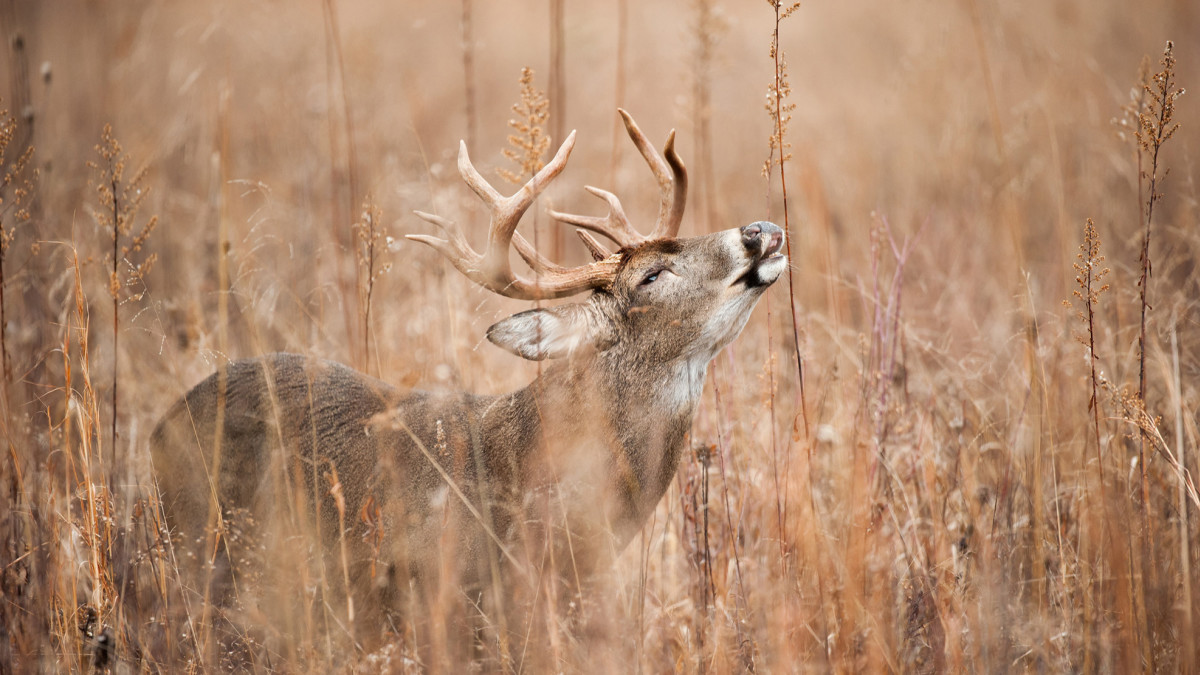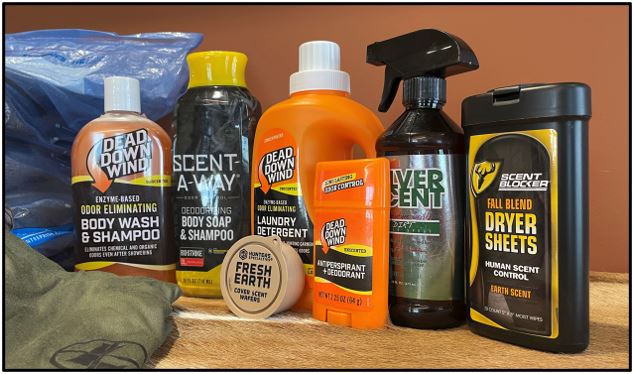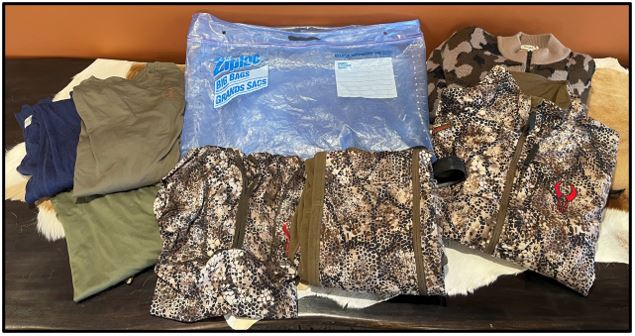Korth Group Outdoor Education, Tips for Minimizing Your Scent

Deer and many other animals have an exceptionally keen sense of smell, which they rely on for survival. Deer, for instance, can detect scents from predators, food sources, and even humans from several hundred yards away, making their sense of smell one of their most vital senses. Similarly, animals like dogs and bears have highly developed olfactory systems, allowing them to track scents over long distances and differentiate between complex smells.
When preparing for a hunt, one of the things hunters focus on to be more successful is mitigating their scent to be as undetectable as possible to your surroundings. This includes the scent on their clothes, gear, skin, hair, etc. This is again a very subjective topic that everyone has their own way of dealing with but on this edition of Korth Group Outdoor Education we are going to explore a few tips on how to minimize your scent to become a stealthier hunter and to outsmart the animals you are engaging.

PRIOR TO THE HUNT
Preparing your gear for a hunt, in most cases, is just as important as the hunt itself – sloppy input provides sloppy results. There are many things you can do prior to the season even starting that can help you be more successful during the hunt. When it comes to eliminating scent from your gear and your person there are a few strategies to consider.
First is laundering your clothing in a scent free or odor eliminating detergent. This is a common mistake that can bust hunters right out of the gate as they tend to wash their gear with the rest of the family’s clothes and end up smelling like a Paradise Blossom Bounce Sheet. It is important to wash your hunting clothes on their own with odor eliminating detergent and even hanging them outside after being laundered. This will allow any natural smells to penetrate through and have the UV from the sun kill any additional unnatural odors.
Once laundered and aired out it is imperative to keep any foreign smells off of them until you are ready to gear up for your hunt. Ziploc offers their Big Bags that are 2’x2′ zipper sealed bags that will easily house all of your hunting clothes. Keeping them in something like this and storing it inside a large storage tote will ensure your clothes are protected from any unwanted scents. For any gear that is unable to be washed like binos, harnesses, backpacks, bows, rifles, etc., scent eliminator spray is always a preferred method that can be applied on the exterior to mask or eliminate any odors that it may possess.

So now that your clothes and gear are taken care of, the odors on your skin and hair are next to focus on. Prior to heading out to your hunting spot it never hurts to have a quick shower with odor eliminating body wash and shampoo. This helps removes any body odors or applied smells like scented deodorant or hair products from your person. If you are driving out to your intended hunting area, make sure you don’t put your hunting clothes on for the drive. This can pick up smells from inside your vehicle that can easily be detected by wildlife. It is recommended to change into general clothes, preferably clothes that are washed in scent free detergent, for the drive out and change into your hunting gear that is stored in your sealed tote once you arrive and park your vehicle. There are many steps to this process prior to the hunt to ensure your scent is mitigated, but it is discipline like this that can make the difference between a successful hunt and going home with a tag still in your pocket.
DURING THE HUNT
Now that you are geared up and walking out to your stand, blind, or intended hunting area there are a few other strategies to take into consideration that will help mask your scent from the animals around you.
If you are walking in and exerting your body to get to your intended destination, do not over dress! The more layers you wear the more your body is going to heat up, causing unnecessary perspiration. Hunting the early season tends to bring a larger spread of outdoor temperatures where it is warmer earlier in the evening and cools off as the sun goes down. Packing some extra layers in your backpack to put on once you arrive at your stand or blind will mitigate this concern. Bring your bottle of odor eliminating spray as well to use once you arrive at your intended hunting location. This can be used as insurance if you find yourself perspiring during the trip or to provide an extra layer on your gear, tree stand, or blind once you arrive. If all else fails and you forget your odor eliminating spray, you can always roll around in the grass or dirt to obtain some natural odors. Depending on your geographical location, natural foliage like cedar bows and sage plants can offer these scent safety nets.
The most common point of focus for all hunters is adequately playing the wind. Pick a travel route to your destination that doesn’t blow your scent in the direction of your hunting grounds. Travel on paths that you know the game are not going to be routed on for that time of day. If you have multiple stands or hunting locations on a piece of property, strategically choose one that gives you the advantage for that time of day based on where the wind in coming from. You do not want the wind to be pushing any scent you have remaining towards the location at which the animals are going to be travelling.
A successful hunt often hinges on meticulous scent control, from preparation to execution. By taking the time to properly clean and store your gear, manage personal odors, and strategically play the wind, you can significantly reduce your scent signature and increase your chances of outsmarting the keen noses of deer and other wildlife. Remember, attention to detail and discipline in these practices can be the difference between filling your tag and heading home empty-handed.
